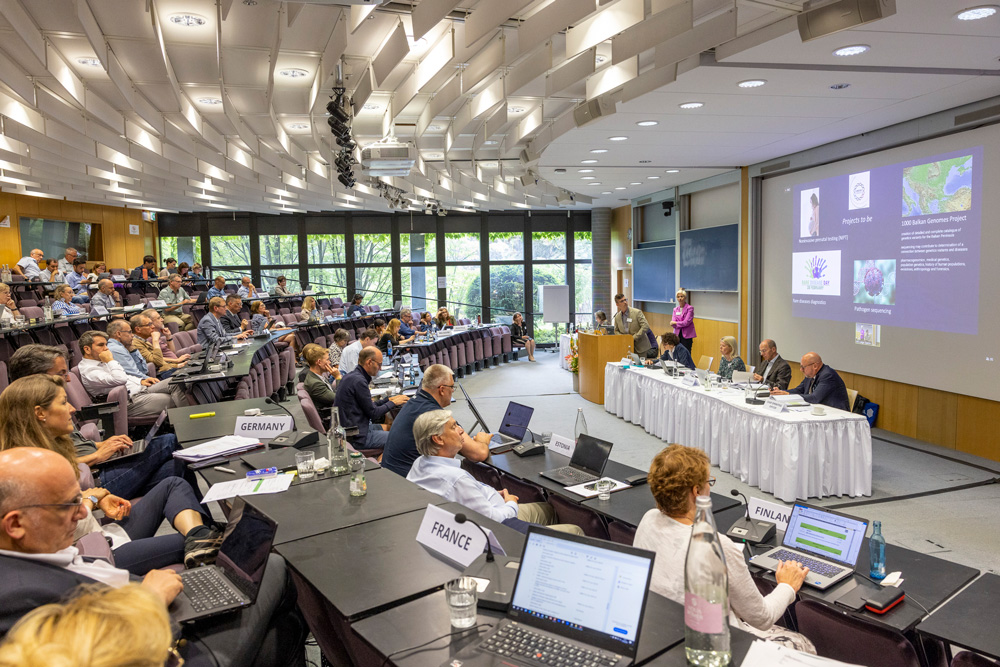
EMBL is Europe’s Life Sciences Laboratory
We conduct world-class biological research and training and offer state-of-the-art technology for a wide range of experimental services.
EMBL is an inter-governmental organisation with 29 member states, one associate member and one prospect member that is led by the Director General, Prof. Edith Heard, appointed by the EMBL Council.
The EMBL Council is composed of all member states of the Laboratory. Each member state is represented by up to two delegates, who may be accompanied by advisers. Council ensures that the financial requirements of the agreement establishing EMBL and of the agreements with host member states are complied with.
The Finance Committee assists the Council in the financial management and control of EMBL.
Council establishes a Scientific Advisory Committee that gives advice to Council, in particular with regard to proposals from the Director General on the realisation of the programme of the Laboratory. The Scientific Advisory Committee is composed of distinguished scientists appointed in their own right, not as representatives of member states.

The Directorate has a mandate to enable high-level consultation on strategic EMBL-wide matters. It oversees and guides key initiatives for EMBL and advises and supports the Director General in decision-making on EMBL-wide matters.
The Extended Directorate advises and assists the Director General in important scientific, political, technical and administrative aspects of the leadership of EMBL. It is a forum where Extended Directorate members can raise operational, organisational or scientific topics from the different sites and units and areas which are of strategic importance to the organisation and where new EMBL initiatives or changes can be discussed in their early stages.
The Scientific Strategy and Management Advisory Committee (SSMAC) is an advisory body for strategy development in the areas of research, scientific services (internal and external) and technology development – particularly in the context of developing the EMBL Programme and Indicative Scheme.
SSMAC has a role in evaluating and making recommendations on senior appointments and the promotion of staff, particularly scientific staff, in recognition of outstanding performance.
It gives input and feedback to the Directorate and Extend Directorate on a broad range of topics, considers new scientific trends relevant to the whole of EMBL and shares information from senior management to local colleagues. As a group of senior staff, SSMAC are knowledgeable about the entire laboratory and its procedures, and thus have a major influence on its functioning and development, including as an advisory body for the adoption and revision of Internal Policies.

We conduct world-class biological research and training and offer state-of-the-art technology for a wide range of experimental services.

The ‘Molecules to Ecosystems’ Programme outlines EMBL’s plans for its next five-year cycle.

A year of exceptional life science research, services, training, industry collaboration, and integration of European life science research.